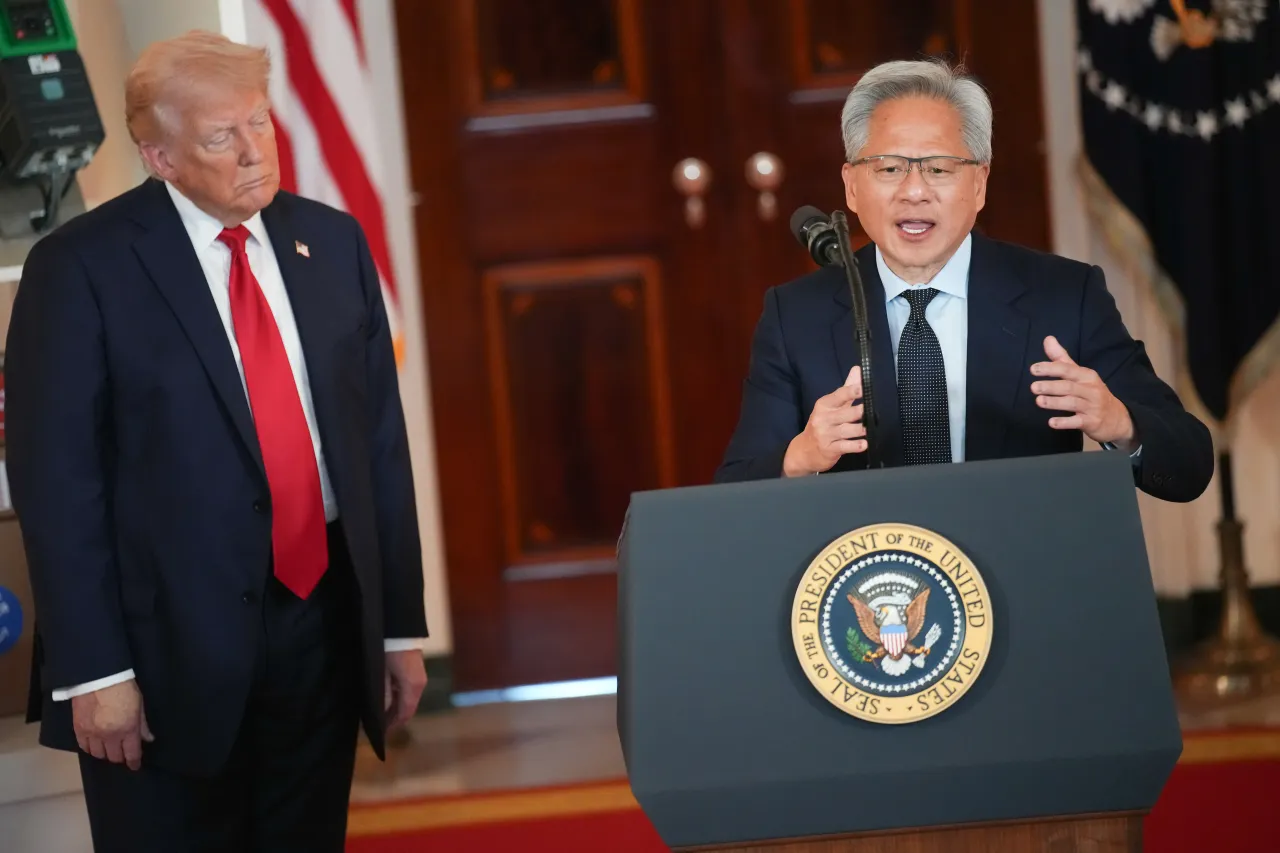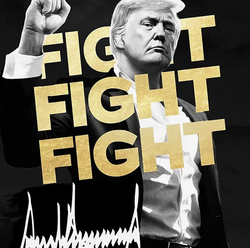Advertisement|Remove ads.
Nvidia May Have Just Scored Big In DC — White House Reportedly Urges Congress To Oppose China Chip Curbs

- The GAIN AI Act proposes that a company seeking a license to export advanced AI chips to China and other countries of concern first certify that American companies have priority in acquiring those chips.
- Nvidia opposed the bill, stating that it would restrict competition worldwide in any industry that uses mainstream computing chips.
- China-specific H20 chips made a negligible contribution of $50 million to Nvidia’s Q3’06 results.
The bipartisan bill, which proposes restrictions on U.S. exports of advanced artificial intelligence (AI) chips, now faces a hurdle. The White House has reportedly asked Congressional members to oppose the GAIN AI (Guaranteeing Access and Innovation for National Artificial Intelligence) Act.
The development is a positive for Nvidia, which reported robust quarterly results on Wednesday, sending its stock up by over 5% in after-hours trading. Reflecting its dominant position in the AI chip market, Nvidia’s stock has gained 39% year to date.
Nvidia CEO Jensen Huang's bonhomie with President Donald Trump is apparently paying off. The Nvidia CEO attended the dinner hosted by the president for Saudi Crown Prince Mohammed bin Salman and also spoke at the U.S.-Saudi Investment Forum held at the Kennedy Center in Washington.
White House’s Anti-GAIN AI Stance
White House’s lobbying against the GAIN AI Act was reported by Bloomberg, citing people familiar with the matter. The act proposes that a company seeking a license to export advanced AI chips to China and other countries of concern first certify that American companies and startups have priority in acquiring those chips.
Trump’s backing of Huang and Nvidia is a no-brainer, given that the advanced, high-performance computing chips made by the company are used to power most of the AI applications, processes and systems. The president has also been using Nvidia’s AI processors as a bargaining chip in his negotiations with his major trading partners.
Nvidia opposed the bill in no uncertain terms. A company spokesperson reportedly said, “We never deprive American customers in order to serve the rest of the world. In trying to solve a problem that does not exist, the proposed bill would restrict competition worldwide in any industry that uses mainstream computing chips.”
A Wall Street Journal report stated last week that Nvidia hyperscaler customers Microsoft and Amazon backed the GAIN AI Act.
The Bloomberg report also stated that lawmakers were mulling another bill, the Secure and Fair Enforcement (SAFE) Act of 2025, which would require the Commerce Department to deny all applications for the sale of AI chips to China that are more powerful than those the US currently allows.
Win For Nvidia?
Nvidia, which had a thriving business in China before the previous Biden administration banned the export of its AI chips in late 2023, began to see its sales to the country taper. The workaround China-specific AI chip, the H20, which Nvidia developed, was banned by the Trump administration in April, bringing its China revenue to a standstill.
Although the government has lifted the ban, the resumption of exports hasn’t materialized in a meaningful manner. On Nvidia’s third-quarter earnings call, CFO Colette Kress said China-specific H20 chips made a negligible contribution, at $50 million. This is a marked reduction from the $4.03 billion (about 22%) China, including Hong Kong, contributed to Nvidia’s top line in the third quarter of 2023 before the Biden ban came into effect.
China, for its part, has taken an antagonistic stance toward the whole chip curb saga, stepping up incentives and funding for homegrown chipmakers and explicitly instructing state enterprises and government agencies to ban the use of Nvidia chips, citing security concerns.
For updates and corrections, email newsroom[at]stocktwits[dot]com.













/filters:format(webp)https://news.stocktwits-cdn.com/large_Getty_Images_2190302521_jpg_796f64970e.webp)
/filters:format(webp)https://news.stocktwits-cdn.com/Anushka_Basu_make_me_smile_in_the_picture_b92832aa_af59_4141_aacc_4180d2241ba8_1_2_png_1086e0ed8c.webp)
/filters:format(webp)https://news.stocktwits-cdn.com/large_Getty_Images_2194612888_1_jpg_5f7b7f6186.webp)
/filters:format(webp)https://news.stocktwits-cdn.com/large_Getty_Images_1384896168_jpg_87fab3f04d.webp)
/filters:format(webp)https://news.stocktwits-cdn.com/large_Getty_Images_2263571605_jpg_f769289486.webp)
/filters:format(webp)https://news.stocktwits-cdn.com/large_Getty_Images_2233719278_jpg_46dfac21ee.webp)
/filters:format(webp)https://news.stocktwits-cdn.com/large_Getty_Images_2263454468_jpg_23f4595a31.webp)